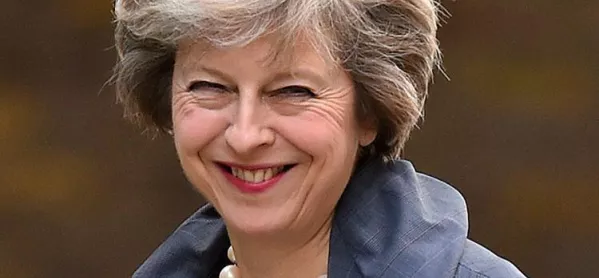We all know that in the British political system, the electorate doesn’t actually vote for the prime minister - they vote for their local MP. Except I do. I live in Maidenhead - Theresa May’s constituency. So next month, her name will be on my ballot sheet. She therefore pops up at all the local events that one expects a constituency MP to attend: the local marathon, visiting local businesses and opening fetes.
It was at the last of these that I bumped into her last weekend. Along with my husband and two young children, I was at Maidenhead Duck Day - a local fete where rubber ducks are raced down the River Thames to raise money for charity (mine didn’t win).
The kids were playing “hook a duck” when my husband nudged me to point out Theresa May talking to some of the stall holders. At first, I thought I’d let her be. It was the weekend. She wasn’t campaigning. I wasn’t working.
But then she started interacting with the kids. I had my opportunity. Telling myself it was “for the kids”, I asked: “Can you clarify your manifesto position around grammar schools and how you will make them accessible to the most disadvantaged?”
Now I like to imagine I know a fair bit about evidence. I have been an education researcher for over 15 years. Since the general election was called, I have also been using my role as head of impact at the National Foundation for Educational Research to work with Full Fact. We fact-check the education claims made during the campaign. I therefore had plenty of evidence to hand.
Dismissing the evidence
Mrs May was very engaged, she listened to my evidence and responded with detailed examples. But these examples - one school here, one headteacher there - didn’t feel like they really reflected the empirical, large scale, robust research I was sharing.
While I accept that policy is driven by a wide range of factors, and that there is considerable value in personal experiences, it concerns me deeply that when there is such a robust evidence base, it can be so easily dismissed. As an education researcher, I know I sit in a bit of a bubble. After the encounter, my husband tweeted a picture of me with Mrs May and I received widespread support from teachers and researchers. However, while I was standing in that sunny Maidenhead field, I was in a definite minority.
In the local playgrounds and among my mum-friends it’s the same. The evidence doesn’t matter - the chance that their child could attend a grammar school (and yes, Maidenhead is in the running for one) is a good thing. Any evidence to the contrary (for example, that less than 3 per cent of all pupils going to grammar schools are entitled to free school meals) is just not of interest. As she closed our discussion, Theresa May said to me:
“You can have all the evidence in the world, but headteachers have told me grammar schools are good for disadvantaged pupils.”
Politicians need to be wary of cherry picking evidence to suit their cause. The risk of such an approach is when there really is good evidence, people stop listening. Chief secretary to the treasury, David Gauke, fell foul of this on Any Questions last week. He quoted IFS and EEF findings on the limited benefits of free school lunches compared to breakfasts. Yet this accurate use of credible, robust evidence was not welcomed by the audience or the other panellists.
For them, as for the crowd on Duck Day, the evidence simply did not fit with their vision for education.
Want to keep up with the latest education news and opinion? Follow Tes on Twitter and like Tes on Facebook


